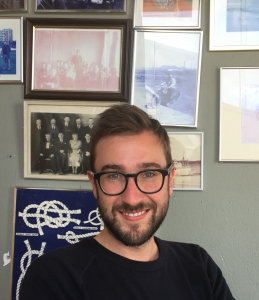Project Lead

Harry Weeks
Lecturer, Fine Art, Newcastle University
Contact: Harry.Weeks@newcastle.ac.uk
Co-investigator
Lucas Ferguson-Sharp, Northumbria University
Supporting Partner(s)
The Newbridge Project; Newcastle University
Challenge
Opening Doors considers how cultural workers can be best supported to survive and thrive in a precarious economy, whilst also investigating means through which labour norms and practices might be challenged and improved.
They ran a series of six workshops hosted by, and produced in collaboration with, Newbridge Project at their space in Gateshead. There are plans to pool the resources between art workers and ones produced by the activist groups in both a physical and digital form to make them easier for people to access.
A Forum for Artists in Precarious Labour
Six workshops took place at the NewBridge Project, an artist-led community centre in Newcastle, collectively titled ‘Assembly: A Forum for Artists in Precarious Labour’ and were conceived of as spaces in which artists could freely and frankly discuss their working lives.
The events were designed to serve as opportunities for people to share lived experiences, as well as tactics and strategies for alleviating the impacts of precarity.
Participants for the workshops were made up of a varied group of local artists and art workers. A core group of around 10 attended most/all workshops, while a further 40 attended one or more workshops. These were drawn from various local networks and attendees represented a wide diversity of ages and genders, although racial diversity was minimal.
Outcomes
Lack of Knowledge
It became apparent that a key concern amongst the participants was their sense of a lack of knowledge concerning key and practical information, especially relating to employment law, rights, contracts, invoicing and other administrative activities associated with working as a freelancer in the cultural sector.
The project will address the entrenched inequalities of the cultural sector and thus advocate and work towards social justice in the sector. Cutting-edge research will be brought into direct conversation with the realities of artists in the North East.
A need for transparency
The taboo nature of conversations regarding one’s own finances and working conditions was considered to be a major barrier to progression on issues of precarity within the sector, serving to individualise what are in fact systemic issues. A need for openness and transparency amongst workers was called for.
Barriers to form solidarity
Participants highlighted the many barriers to forms of solidarity amongst workers in a sector dominated by freelancing, low pay and undercutting. This may also be a cultural phenomenon linked to long-standing assumptions regarding creativity and individualism. Conversations particularly revolved around unionisation as a necessary but difficult process. The Artists Union England was highlighted as a key player in this respect.
Psychological and physical impact
The impacts of precarity go far beyond the economic, and many conversations were had regarding the more bodily permutations of precarity.
Insulated Community
While the workshops were focused on art workers, the lack of knowledge of the rights and standards of other labour sectors was apparent. Creating inroads and forming partnerships with other sectors was discussed as a means of knowledge sharing and creating solidarity.
Insulated Community
While the workshops were focused on art workers, the lack of knowledge of the rights and standards of other labour sectors was apparent. Creating inroads and forming partnerships with other sectors was discussed as a means of knowledge sharing and creating solidarity.
Future Directions
Plans for hosting the physical resource hub are currently being negotiated with the Newbridge Project and the Star and Shadow Cinema. Both of these spaces are ingrained within the North-East’s arts infrastructure and are founded on an artist-led, activist ethos that echoes the intentions of the project.
The establishment of the digital resource hub will follow. It will gather materials available in the physical hub, and further research will be directed towards how to make the most of the different opportunities afforded by digital space.
Work on the production of the online/offline resource hub will be supported by further research into organisation and solidarity amongst gig workers, with particular focus paid to recent unionisation efforts amongst Deliveroo riders. This is seen as a key comparator for attempts to unionise workers in the art field, with lessons to be learned both from their successes and failures.

